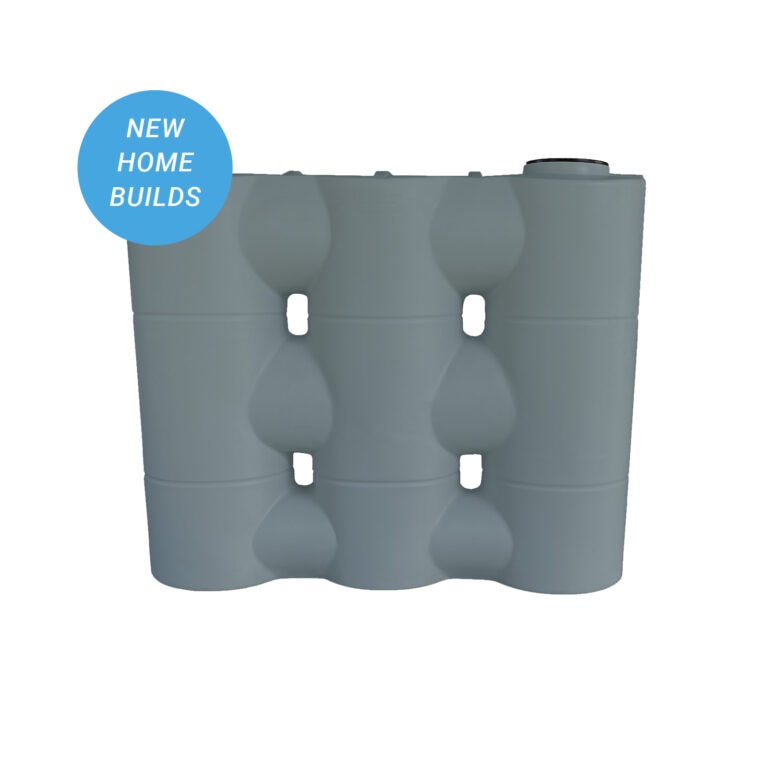Discover the Value of Rain Tanks for Lasting Water Conservation Efforts
In the world of lasting water preservation, the application of rain storage tanks stands as a pivotal technique that values better evaluation. By checking out the complex benefits of rainwater harvesting, a profound understanding of its prospective effect on water conservation efforts arises.
Benefits of Rainwater Containers
Utilizing rain containers provides a useful solution for sustainable water monitoring by harnessing nature's resources effectively. Rainwater tanks gather and keep rain that drops on rooftops, which can after that be made use of for numerous non-potable objectives, such as irrigation, cleaning garments, flushing commodes, and even for some drinkable usages with appropriate treatment. One of the crucial advantages of rain containers is the reduction of demand on mains water, specifically during dry seasons or dry spells.
Environmental Impact of Rain Harvesting
Rainwater collecting with using tanks presents a sustainable water administration experiment favorable ecological implications. By recording rainwater, this method assists lower the demand for mains water supply, thereby easing the worry on water treatment plants and reducing power usage related to water circulation. Furthermore, rainwater harvesting aids in minimizing urban flooding and erosion by decreasing the volume of stormwater overflow. This procedure also adds to groundwater recharge, which is critical for preserving water degrees in wells and springs, specifically in locations prone to drought.
In addition, rain harvesting promotes water conservation and reduces dependence on finite water resources. Generally, the ecological effect of rain harvesting underscores its significance in advancing sustainable water management techniques.
Rainwater Containers for Residential Use
Having highlighted the environmental advantages of rainwater harvesting, the focus now shifts to the functional application of rain containers for property water preservation (Slimline water tanks). Rain tanks play an important role in property water management by capturing and saving rainwater that drops on the roofing of a house. These containers can vary in size and product, using home owners versatility in choosing a system that fits their demands
Among the main advantages of making use of rain tanks in residential settings is the decrease in reliance on mains water. By accumulating rain for non-potable usages such as sprinkling yards, washing automobiles, purging toilets, and doing laundry, households can dramatically reduce their total water consumption and energy costs. Additionally, rain is usually without the chemicals discovered in treated water, making it a more suitable selection for particular house jobs.
Additionally, rainwater harvesting systems can assist alleviate metropolitan flooding and disintegration by reducing stormwater runoff. By capturing rain in containers, less water flows right into storm drains, lowering the strain on local water drainage systems throughout hefty rains. On the whole, including rain tanks into houses contributes to lasting water preservation efforts and advertises self-sufficiency in water monitoring.

Financial Advantages of Making Use Of Rain Containers
The monetary advantages related to the execution of rainwater tanks in domestic and commercial settings are substantial and multifaceted. Among the primary financial advantages of using rain storage tanks is the reduction in water costs. By gathering and storing rain for numerous non-potable uses such as irrigation, toilet flushing, and laundry, residential or commercial property owners can dramatically lower their reliance on mains water system, bring about significant cost savings over time.
Additionally, the setup of rain tanks can increase building value. In today's ecologically conscious market, residential properties equipped with sustainable page attributes like rainwater harvesting systems are typically more eye-catching to potential purchasers, commanding higher asking price and faster sale times.
In addition, rainwater containers can aid businesses and house owners alleviate the effect of water constraints and rising and fall water costs. By having an auxiliary water source during dry spells or periods of boosted water expenses, people and organizations can better handle their water-related expenditures and great post to read preserve functional continuity. In general, the economic benefits of making use of rainwater storage tanks make them a sensible investment for long-term financial savings and sustainability.
Area Sustainability With Rainwater Collection
Taking into consideration the more comprehensive impact beyond individual benefits, the combination of rainwater collection systems in communities plays a crucial role in promoting ecological sustainability and source administration. Community sustainability through rain collection initiatives not just aids in minimizing the pressure on local water resources yet also assists in minimizing the effects of urbanization on regional water supply. By mounting rainwater containers in public buildings, parks, and public spaces, neighborhoods can lower their dependence on centralized water sources, bring about a more resilient water throughout droughts or emergency situations.
Additionally, community-level rain harvesting promotes a sense of collective duty towards water conservation. It encourages residents to actively participate in sustainable techniques, advertising awareness about the relevance of water conservation and eco-friendly stewardship. Slimline water tanks. With academic programs and outreach initiatives, neighborhoods can empower individuals to make informed selections regarding water use and management, leading the way for long-term ecological sustainability. Ultimately, neighborhood sustainability via rainwater collection not only profits the existing generation however also ensures a more lasting future for generations to come.

Verdict
